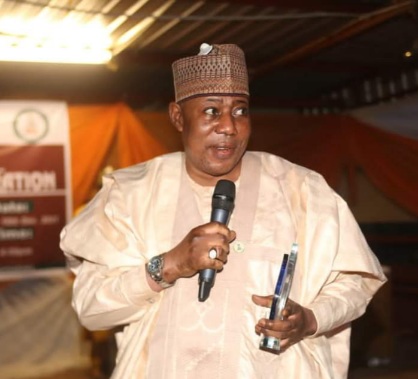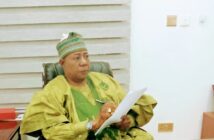It is regrettable to note that despite Nigeria’s envious position as a member of the Organisation of Petroleum Countries (OPEC), its economy did not reap maximum benefits from its Oil due to defectives laws of the past. In retrospect, Nigeria joined OPEC on July 12, 1971, as the first Sub-saharan African country to do so. Since joining OPEC just over a decade after it was formed, Nigeria has played a major role in driving the organization’s focus on cooperation, goodwill, a sense of belonging and unity, and in working towards achieving oil market stability, bearing in mind the benefits this brings to both producers and consumers.
In a nutshell, Nigeria joined OPEC because of the need to correct its faulty administration of petroleum taxation such that the government receipts per barrel and posted prices could compare more favourable with those of the OPEC members as well as the advisability of aligning her aspirations with those of other oil.
Unfortunately, the things that have eluded Nigeria since it started oil exploration are legal, governance, regulatory and fiscal frameworks for the petroleum industry, development of host communities and related matters.
That is why the passage of the Petroleum Industry Bill (PIB) in July 2021 by the National Assembly and subsequent signing into law of the PIA by President Muhammadu Buhari in August 2021 heralded a new era or lifeline in the petroleum and gas industry. This giant stride will certainly recalibrate the narrative of the Oil and Gas sector in Nigeria.
Before now, the absence of this law had cost Nigeria an estimated $50 billion worth of investments in 10 years. The situation was compounded by the uncertainty of non-passage of the Petroleum Industry Bill (PIB), lack of progress and stagnation in the sector.
The new law marks a seismic shift in the way the affairs of the industry is managed. This is unprecedented, especially against the backdrop of the fact that discussions around the law have been on the drawing board for more than two decades. It became an object of politics, corruption and lip service.
No previous government had the nerves or political will to pursue the law to its logical conclusion until President Buhari took the center stage. He breathed vitality into the process, culminating in its passage and signing into law. Today, Nigeria enjoys world renown as a consensus builder and deal maker. This has been clearly on display throughout its five decades in OPEC.
As a member of the African Oil Marketers Forum (AOMF) who has travelled to many of the oil producing countries documents, the feedback about Nigeria has been tremendous. From my conversations with most of the major players and global stakeholders in the oil sector, the Petroleum Industrial Act assented to by President Buhari is well designed and crafted in a way that if adhered to strictly, Nigeria will become one of the too three leaders in the Oil & Gas industry globally.
The success story extends to what is today known as Gas Revolution in Nigeria. On the October 4, 1976, Colonel Muhammadu Buhari, then Nigeria’s Federal Commissioner for Petroleum and Energy, signed, on behalf of the military government, an agreement with Shell and BP for the establishment of an export-oriented 800MMscfd Liquefied Natural Gas (LNG) on Bonny Island, at a cost of 1.8 billion Naira. The Bonny LNG Limited (BLNG) was also incorporated. Unfortunately, that particular project didn’t work out, with the investors pulling out in the early 1980s.
The Buhari-led military administration between 1984 and 85 restarted the bid to make Nigeria an LNG-producing/exporting country, inaugurating, on March 1, 1985, a Nigeria LNG Working Committee, under the Chairmanship of respected boardroom guru, Gamaliel Onosode. That was the birthing of the hugely successful company that is today known as the Nigeria Liquefied Natural Gas (NLNG) Limited. It would of course take another two decades-plus for the first export of LNG from the plant (October
And when President Buhari returned again on June 15, 2021, he presided over the formal flagging-off of construction of the NLNG’s 7th Train, with a capacity for 8 million metric tonnes of LNG, translating to a 35 percent increase in capacity.
The signing of the Bill is a welcome and timely intervention as it is expected to provide certainty to potential and existing investors on the applicable fiscal regime in Nigeria’s Petroleum Industry. Put succinctly, what past Nigerian leaders were unable to do in over 50 years, President Buhari has done it in six years.
Regrettably, instead of applauding President Buhari for this uncommon feat, anarchists who are not happy with the steady reforms in the Oil and Gas Industry have started twisting things and attempting to stand facts on its head. Howbeit, no one expects these greedy elements to be happy with reforms that will save the ‘fat cow’ from been milked by a few privileged individuals.
They have devised a means of misinforming Nigerians that the Buhari-led government was setting a booby trap for its successor with the 18-month postponement of implementation of the PIA. One of the banes of government policies in past administration was the rush to implement them without properly setting up the implementation framework. Buhari is not like them and will not succumb to stampede by enemies of Nigeria to commence PIA implementation.
It was in a bid to ensure loose ends are tightened before PIA implementation that the Buhari government set up a steering committee to oversee and put modalities in place before full commencement. This approach is commendable as it will ensure PIA implementation succeeds without excises because proper leg-work would have been concluded within the 12-month grace period.
What is assuring is the calibre of people that constituted the committee. The Minister of State, Petroleum Resources, Timipre Sylva, who heads the committee, is the egg head in the petroleum industry. Other members include permanent secretary, ministry of Petroleum Resources; Group Managing Director, Nigerian National Petroleum Corporation (NNPC); Executive Chairman, Federal Inland Revenue Service (FIRS); representative of Ministry of Justice, Finance, Budget and National Planning; and Senior Special Assistant to the President on Natural Resources, Olufemi Lijadu as External Legal Adviser. With the creame de la creame in the Oil and Gas that makes up this implementation Committee, Buhari must be commended for his thoroughness and patriotism.
-Ibrahim is director, Communications and Strategic Planning, of the Presidential Support Committee (PSC)



